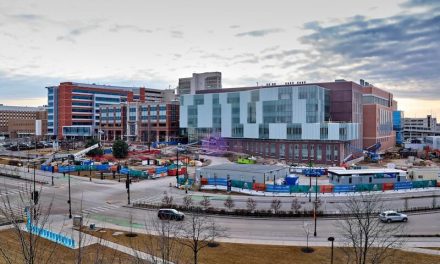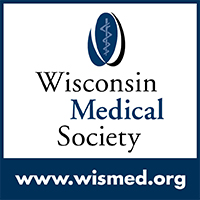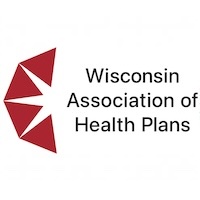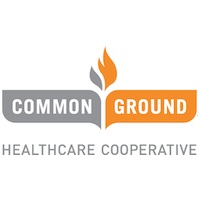
Medical College of Wisconsin Set to Lead Key Initiative as Part of EDA Tech Hub Phase 2 Funding
MILWAUKEE – The U.S. Economic Development Administration (EDA) has awarded $49 million to the Wisconsin BioHealth Tech Hub (Tech Hub), a transformative initiative to make Wisconsin a national leader in personalized medicine by accelerating biomedical innovation, growing jobs, and bringing new products to market.
The Medical College of Wisconsin (MCW) is one of 18 members of the Tech Hub Consortium representing Wisconsin’s personalized medicine strengths across public and private sector partners that came together for a unified purpose, to advance Wisconsin.
“The creativity and collaboration of the Wisconsin BioHealth Tech Hub partners has been impressive, and I commend BioForward for their leadership and success in building an extensive biohealth network,” said MCW President and CEO John R. Raymond, Sr., MD. “MCW is honored to be a key partner in this significant effort to advance innovations that improve health for all people and contribute to a flourishing society.”
MCW is leading one of three technology projects funded by the EDA. CAREScan Mobile Screening aims to revolutionize the delivery of healthcare as a fully mobile platform that improves health equity through neighborhood-based access to health screening and care. CAREScan will offer lung, colon, breast, prostate, and liver cancer screening, and is designed to screen for other diseases as technologies evolve. CAREScan also will utilize AI-enabled telehealth interfaces developed by NexusMD, a biotech startup launched by researchers from MCW.
An important part of the CAREScan project will include building connections and trust within underserved communities to foster understanding and participation in what will be unprecedented community-based access to cancer screenings. CAREScan is partnering with Milwaukee-based InPower and Madison-based Wisconsin Health Literacy to guide community outreach. Additionally, in partnership with the Milwaukee School of Engineering, a generative artificial intelligence component will be developed to interface with community members.
“There is unlimited potential in CAREScan – as the first platform of its kind to bring together screening technologies and expertise in a single fleet. It enables us to offer screening and care at the doorsteps of community members,” said Mara Lord, PhD, CAREScan project lead and senior vice president at MCW. “We will implement CAREScan as a community-immersed model, taking time to work with community organizations, leaders, and mobilizers to first build trust.”
CAREScan will be developed and deployed from MCW’s Milwaukee campus and will visit neighborhoods in Milwaukee County with low cancer screening uptake. CAREScan also will work with Wisconsin’s Tribal Nation leaders to offer the mobile screening opportunity to tribal communities.
“CAREScan is a platform for connecting individuals traditionally missed by major medical networks,” said Dr. Lord. “When we miss people in our care model, we also miss them when evaluating innovations. We need to make personalized medicine inclusive and equitable at every step, from idea to treatment.”
“The CAREScan project’s comprehensive mobile imaging platform offers a robust foundation for universally accessible early disease detection and continuous monitoring,” said Kevin Koch, PhD, professor in the Department of Radiology and executive director for the Center for Imaging Research at MCW. “This novel fleet will feature CT, mammography, ultrasound, and MRI capabilities and will be built to scale across Wisconsin and the nation.”
The three technology projects are designed to work collaboratively to fully leverage the collective strengths of MCW, UW-Madison, and GE Healthcare to advance personalized medicine in Wisconsin.
The Wisconsin Health Data Hub, led by UW-Madison, aims to build an inclusive health data ecosystem for research-ready health data that are comprehensive, accessible, and secure. Entrepreneurs, biohealth and technology companies, and scientists will be able to access the Health Data Hub to evaluate new innovations. CAREScan will contribute inclusive data to the Health Data Hub.
GE Healthcare will enhance personalized medicine by advancing the growing field of theragnostics, an emerging cancer treatment option. The global imaging leader will deliver an interface that streamlines the integration of new technologies into health care systems.
“Wisconsin is built on partnership, and long-standing collaborations like those among MCW, UW-Madison, and GE Healthcare will drive critical innovation in our state,” said Joseph E. Kerschner, MD, MCW provost, executive vice president, and the Julia A. Uihlein, MA, Dean, School of Medicine. “I am confident that the ability to flow ideas, data, and outcomes across our organizations will yield significant impact for our communities.”
Additionally, Madison College and Milwaukee Area Technical College are leading a project to aid workforce development and job growth in Wisconsin. Early projections estimate up to 30,000 quality jobs created and as much as $9 billion in regional GDP growth, pending full funding of the projects.
“The Wisconsin BioHealth Tech Hub is fueled by partnerships and innovation, and CAREScan exemplifies the future of healthcare: an AI-driven platform that amplifies underserved voices, boosts provider capabilities, and fuels economic progress by enabling the creation of inclusive, effective health solutions,” said Andrew Nencka, PhD, associate professor in the Department of Radiology and operations director for MCW’s Center for Imaging Research.
As part of the Biden Administration’s Tech Hubs Program, funding provided to the Wisconsin coalition was part of $504 million divided among 12 different tech hubs throughout the nation. The funding is part of the 2022 federal CHIPS and Science Act that is focused on strengthening U.S. economic competitiveness and national security along with accelerating the growth of industries of the future in regions throughout the U.S.
# # #
About the Medical College of Wisconsin
With a history dating back to 1893, The Medical College of Wisconsin is dedicated to leadership and excellence in education, patient care, research, and community engagement. More than 1,500 students are enrolled in MCW’s medical school and graduate school programs in Milwaukee, Green Bay, and Central Wisconsin. MCW’s School of Pharmacy opened in 2017. A major national research center, MCW is the largest research institution in the Milwaukee metro area and second largest in Wisconsin. In the last 10 years, faculty received more than $1.5 billion in external support for research, teaching, training, and related purposes. This total includes highly competitive research and training awards from the National Institutes of Health (NIH). Annually, MCW faculty direct or collaborate on more than 3,100 research studies, including clinical trials. Additionally, more than 1,650 physicians provide care in virtually every specialty of medicine for more than 2.8 million patients annually.
















.jpg?bwg=1612548324)













